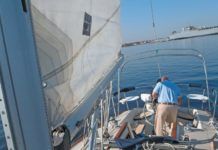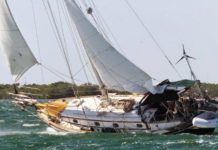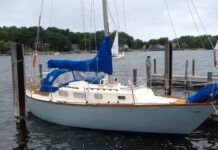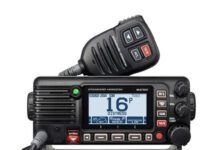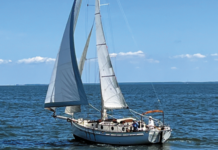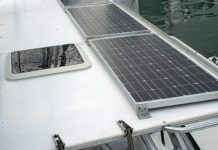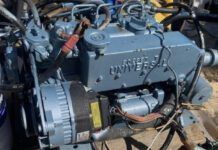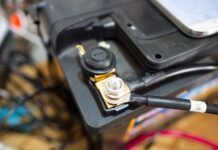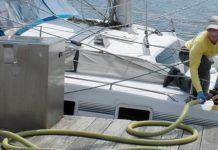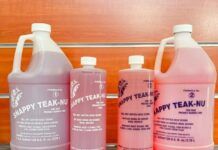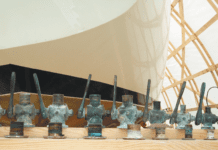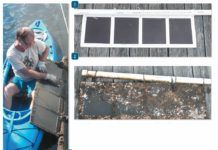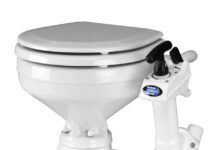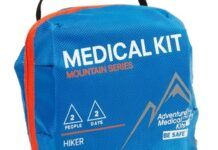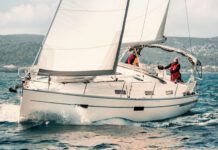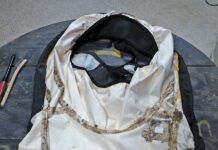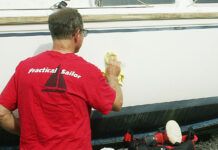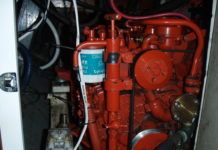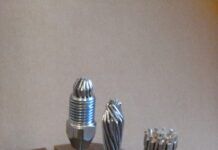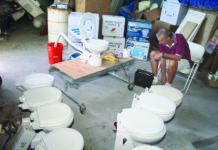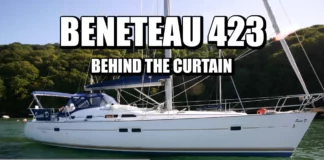Practical Sailor welcomes any new technology or product that lessens boaters environmental impact and encourages more sustainable practices, but were always a little skeptical when companies unveil new green products. Are they truly eco-friendly innovations, or simply marketing attempts to snag consumers willing pay a little more to pollute a little less?
Visits to the winter boat shows turned up no shortage of green products for sailboats. We took a First Look at some of these and plan more in-depth tests for future reports as we separate fact from fluff in the green marine market.
Two products that caught our eye at the Miami International Boat Show were Henri Lloyds new 100-percent recyclable foulies and West Marines biodegradable engine oil for two-stroke outboards.
Blue Eco foulies
The Blue Eco line of foul-weather gear from British sailing apparel maker Henri Lloyd is touted as the worlds first infinitely recycled sailing apparel. Once a consumer has decided he no longer wants the gear, he can return it to the retail outlet where he purchased it, and that retailer ships it to a recycling center, where it is broken down into raw polyester to be used in making new Blue Eco gear. This infinite-loop recycling makes the most of resources, giving the same materials multiple lives, while reducing waste, carbon emissions, and energy consumption.
Henri Lloyd is not the first apparel maker to incorporate recyclable materials in its production methods-companies like Patagonia and Nike have been doing this for some time-but it is the first foul-weather gear maker that were aware of.
PSs brief First Look at the gear found the unisex Blue Eco apparel to be comfortable and breathable. Both the jacket ($175) and bibs ($250) have many of the features PS prefers in high-quality foulies. However, we did note that the jacket lacked the amount of reflective material we like to see.
We love the idea of recyclable anything, but there are many ways consumers can reduce their impact on the environment and reign in the amount of waste they send to landfills. One of the easiest is to buy used gear, and then, when youre done with it, donate it for re-sale, give it to a fellow sailor in need, or sell it at a nautical flea market. This form of localized recycling/re-using cuts the recycling-center shipping outta the loop, further reducing carbon emissions. And recyclable products like the Blue Eco foulies can still be recycled after years of second-hand service.
Well be taking a closer look at the Blue Eco foulies in an update to our last foul-weather gear tests for men (November 2009 and February 2008) and women (July 2008).
Pure Oceans TC-W3 Oil
West Marines new Pure Oceans Biodegradable TC-W3 outboard oil is touted as being a better-performing, more eco-friendly lubricant. Manufactured by Star brite, the two-stroke oil is one of West Marines many green offerings in its Pure Oceans line of cleaners and engine maintenance products.
Its performance perks: Pure Oceans is formulated to be an ashless, clean-burning lubricant that is less likely to break down at extreme high temperatures and is blended to prevent piston seizing, gumming, and carbon deposits. West Marine claims it has zero rust exhibition, which is lower than the industry standard of .26 percent.
Its eco-perks: Tested by Star brite and in ASTM labs, the TC-3W oils emissions were proven to be less harmful to fish and algae than standard oils, and it biodegrades comparatively fast. It meets the stringent OECD 301(Organization for Economic Cooperation and Development) biodegradability standard, which requires that the formula must attain a minimum of 60% biodegradability after 28 days. The engine oil also continues to break down after that, until little or no oil remains in the environment.
So how does it compare to other synthetic 2-stroke outboard oils on the market? According to test data received from West Marine, the Pure Oceans has better cold-weather performance and a higher viscosity (for reaching all of the engines nooks and crannies) than Pennzoils TC-W3, a similar product.
The drawback to these better-performing, greener synthetics is their price: The Pure Oceans sells for $40/gallon, and the Pennzoil is $36. The Star brite can be found for a bit cheaper: $40 for 2.5 gallons.
If youre looking to green your outboard but don’t want to shell out $40 every time you need oil, consider upgrading to a cleaner-burning four-stroke or an electric outboard like the 24-volt Minn Kota RT80/S-3X trolling motor (tested in PS May 15, 2005) or one of Torqeedos portable electric outboards.
We tested the Torqeedo Solid Nav Travel (PS January 2010) or the Travel 801L (PS November 2007), but the company has recently released a new outboard that can be solar-charged while its in use: the 503/1003 models, which we plan to test.
To follow these and other future tests subscribe to Practical Sailor magazine.


